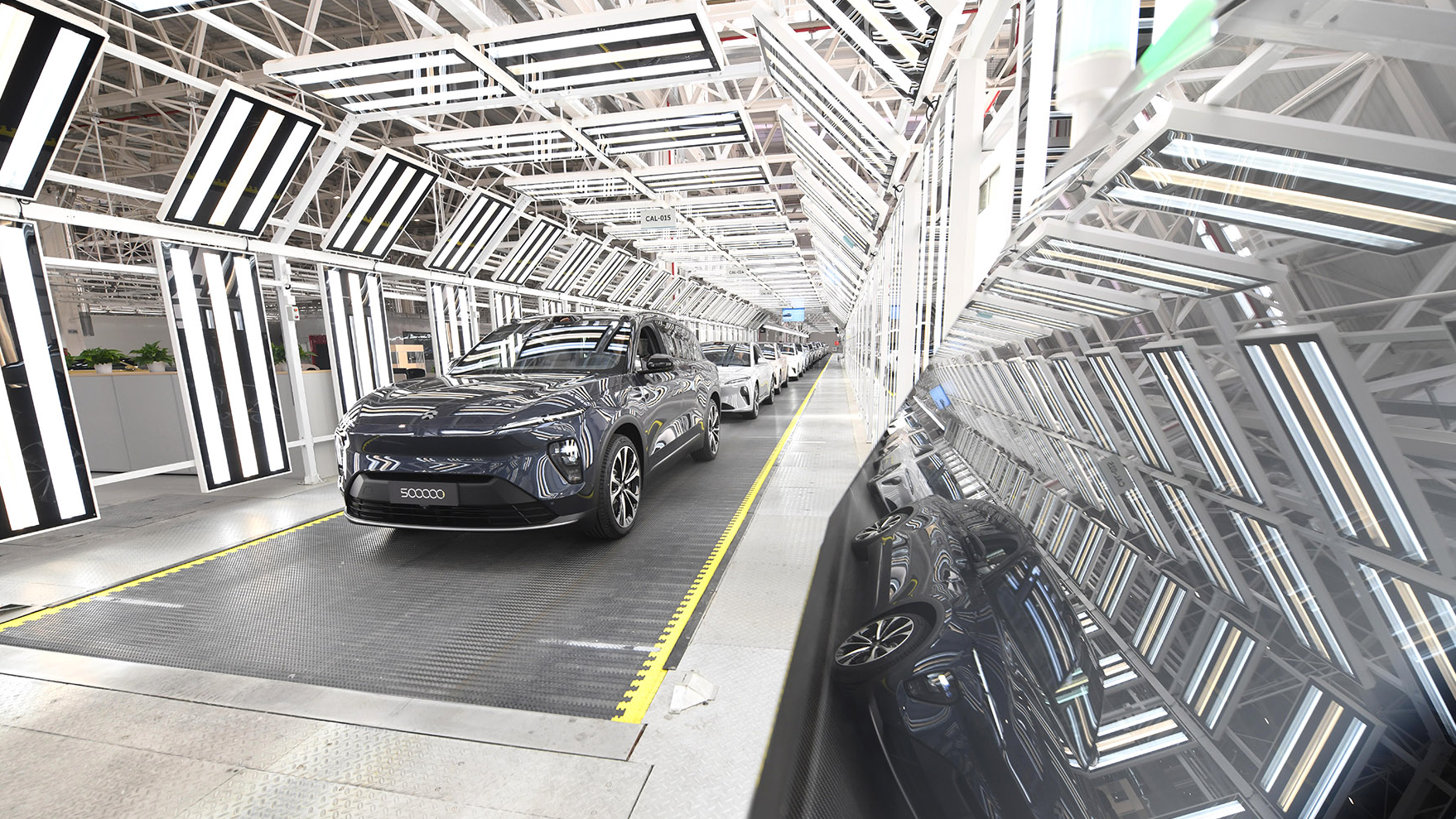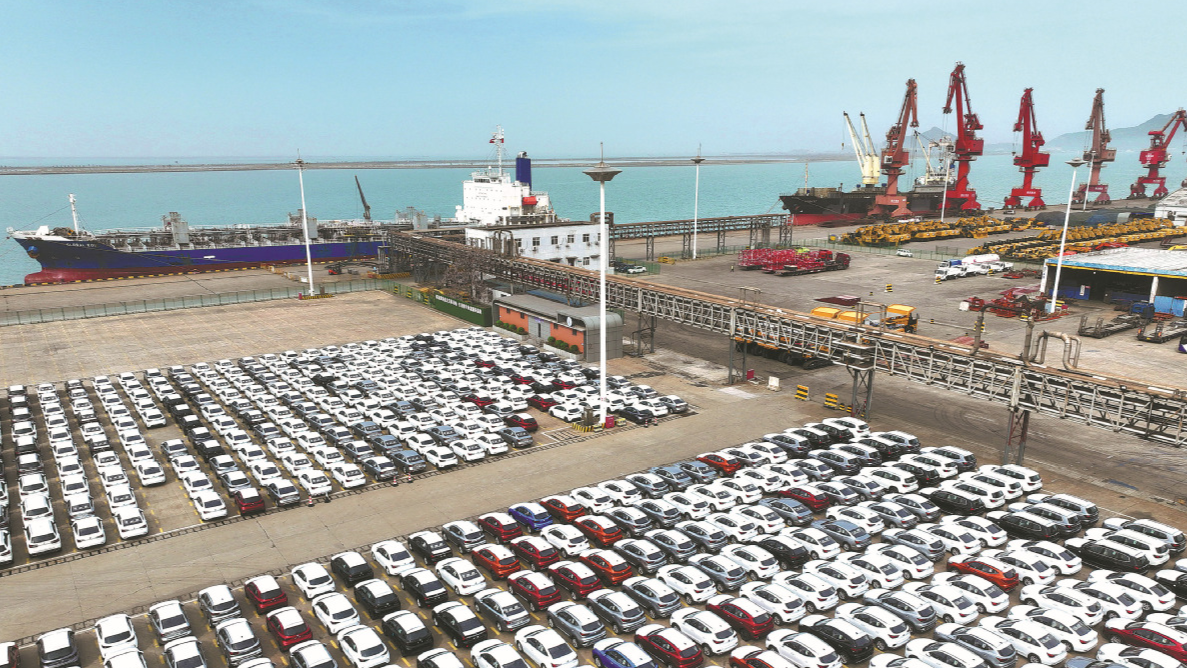
It was not all that long ago when Australian roads were dominated by cars from the United States, Europe, Japan and South Korea.
Today, that is no longer the case.
Chinese brands, such as Great Wall Motors (GWM) Haval and LDV, are starting to make serious inroads into the Australian market.
Data published by the Federal Chamber of Automotive Industries (FCAI) in January showed that 193,433 vehicles made in China were sold in Australia last year – a 57.5 percent increase on 2022 sales.
READ MORE: European and Chinese carmakers slate tariffs
China has now become the third-biggest source of new vehicles sold in Australia, accounting for 15.9 percent of the total – behind Japan (28.4 percent) and Thailand (21.7 percent).
China was the fourth-largest source of new vehicles in Australia in 2021 and 2022 – overtaking Germany and the US – up from sixth in 2020, eighth in 2019, and 12th in 2018
According to the FCAI data, new cars from China have now overtaken South Korea which had a 13.3 percent share of the Australian market last year.
China was the fourth-largest source of new vehicles in Australia in 2021 and 2022 – overtaking Germany and the US – up from sixth in 2020, eighth in 2019, and 12th in 2018.
Analysts pointed out that China had spent decades building its auto industry, and today is challenging traditional automaking centers in the US, Europe and Asia.
University of Technology Sydney industry professor and chief economist Tim Harcourt noted that Australia started to see Japanese cars entering the market in the 1960s, followed by South Korean makes a decade or so later.
READ MORE: Chinese carmakers zoom ahead abroad
“At the time Australia still had a domestic car sector which made entry all that more difficult for new entrants to the market. But in time Japanese and Korean brands established themselves both in quality and price,” he told China Daily.
It takes time to establish a brand especially when it comes to cars, but Chinese makes, starting from a low base, have made and will continue to make significant inroads into the Australian market, Harcourt said.
The growing popularity of its brands aside, China is also making its presence felt in Australia’s electric vehicle (EV) market.

“Price and quality in international comparison” are two main reasons for the development, said Hans Hendrischke, professor of Chinese Business and Management with the School of Business, University of Sydney.
The website drive.com.au reported that Chinese car giant BYD dethroned Tesla last year to become the world's number-one seller of electric cars and Australia is fast becoming a major market for Chinese-made EVs
“Chinese EVs are cheaper in Australia than in Europe or the United States because Australia has no tariff barriers to protect domestic car makers,” he told China Daily.
“In technology and quality, Chinese EVs are now globally leading, driven by the intense domestic competition.
ALSO READ: EU urged to rectify protectionist practices
“Not least, Australia is a pilot market for launching Chinese products internationally because of the small-time difference and the multicultural environment.”
The website drive.com.au reported that Chinese car giant BYD dethroned Tesla last year to become the world's number-one seller of electric cars and Australia is fast becoming a major market for Chinese-made EVs.
According to Marina Zhang, associate professor with the Australia-China Relations Institute, University Technology Sydney, the absence of a domestic automobile manufacturing industry has reduced market entry barriers — “unlike in the US and Europe where protectionist tariffs aim to shield local manufacturers”.
“The Australia-China Free Trade Agreement has minimized tariffs on those EVs below the threshold price tag for luxury vehicles, making them competitive in price.
“State and territory incentives across Australia further stimulate EV adoption by reducing upfront costs and expanding infrastructure, making EVs more accessible and appealing,” Zhang said.
She added that “intelligent features in Chinese EVs meet the growing Australian consumer demand for affordable and innovative vehicles”.
READ MORE: The reality behind tariffs on Chinese EVs
Zhang said China's competitive edge in the EV market stems from a decade-long policy on the EV sector.
“Substantial subsidies have nurtured both suppliers and consumers.
“The latter has catalyzed rapid market adoption, significantly enhancing the growth and resilience of EV supply chains across China.”

The EU has initiated anti-subsidy investigations into Chinese EV imports ... Such protectionist barriers are not only a response to the perceived threats to local industries but also reflect broader geopolitical tensions...
Marina Zhang, Associate Professor with the Australia-China Relations Institute, University Technology Sydney
In contrast, she noted, traditional automotive leaders in South Korea and Japan remained entrenched in their incumbent ICE (internal combustion engine) vehicles, thus responding belatedly to the EV transition.
“As a result, Chinese EV makers have achieved a distinctive blend of cost efficiency and technological innovation, positioning them advantageously against more established global competitors,” she said.
While China stands as a global leader in EV technology and design, it faces significant challenges, particularly from rising protectionism and increasing tariffs in Europe and the US.
ALSO READ: China 'reserves right to file lawsuits with WTO' over EU tariffs on EVs
“The European Union has initiated anti-subsidy investigations into Chinese EV imports, a move that could result in punitive tariffs and restrict market access,” Zhang noted.
“Such protectionist barriers are not only a response to the perceived threats to local industries but also reflect broader geopolitical tensions that complicate China's ambitions to expand its influence in the global EV market.
“These developments underscore the vulnerability of China's EV sector to international trade dynamics and highlight the need for strategic adaptations to navigate an increasingly complex global landscape,” she said.


